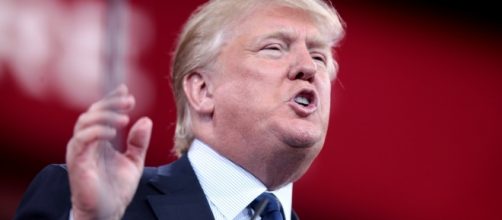President Donald Trump beat all odds when he declared victory on November 8. In doing so, he propagated the idea that a commander-in-chief does not necessarily need prior government or military experience to thrive in office. Instead, all he would need is proof of a mostly successful past that demonstrates his wit, competence, and capability when it comes to hiring “the best people.”
For a short while, Trump restored faith in Republican voters, whose party managed to take control of the House of Representatives, the Senate, and the presidency. In the case of his most avid supporters, their trust in him remained stagnant as he began his tenure with photo-ops of executive order signings and speeches that vehemently doubled down on the promises he made on the campaign trail.
The first of many
However, the Trump cabinet experienced its first downfall when former National Security Advisor Michael Flynn was fired on February 13. Before Flynn served his 24 days in office, the administration received multiple warnings about an ongoing investigation dealing with his contacts with Russians, including one from former President Barack Obama.
Oddly enough, Trump’s decision to fire Flynn so quickly is not what raised questions from critics, but rather his decision to keep him on as an advisor, especially when former Press Secretary Sean Spicer later admitted that the cabinet became aware on January 26 that Flynn had lied to Vice President Mike Pence about discussing sanctions with the Russian ambassador.
The “18-day delay,” as it is so commonly called, produced more doubt about Trump’s judgment, which Spicer tried his best to defend on a daily basis. Once Flynn departed, it seemed as if he had triggered a domino effect that led to one of the reasons why the press secretary was the next notable figure in the White House to leave as well.
It all falls down from there
From crowd sizes to alternative facts about Hitler’s use of chemical weapons, Spicer’s press briefings were considered must-see-TV, seeing as he did not know where to draw the line when clarifying the president’s words, actions, and tweets. His relentless determination to always say what the president wanted to hear instead of what the American people needed to hear was not lost on anyone.
But he felt compelled to leave after Trump tapped New York financier Anthony Scaramucci, also known as “The Mooch,” to be the White House Communications Director. Mr. Spicer even went as far as to say that the president’s decision was “a major mistake.”
After months of defending President Trump’s mistakes—even the so-called “indefensible”— Spicer’s assertion seemed frivolous. Yet, even if Trump had sincerely considered what his former mouthpiece had said, that forewarning probably still would not have prepared him for the disarray that his cabinet was about to endure.


